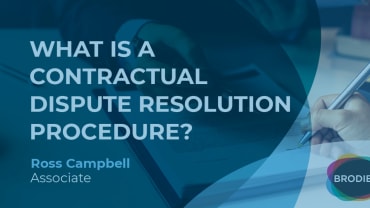Zambia is home to the second largest open cast copper mine in the world. It's primarily run by a Zambian company, Konkola, which is a subsidiary of Vedanta Resources PLC. It is alleged by approximately 1800 Zambian people that operations at the mine have resulted in them suffering injury to their livelihood and health. Litigation commenced in 2015.
Which court?
You could be forgiven for asking why that is relevant to UK business (and their lawyers) as pretty much all the components of the claims relate to Zambia. But the case was raised in the English courts against not only Konkola but also their parent company, Vedanta. Vedanta is based in the UK albeit it appears that they offered to submit to the jurisdiction of the Zambian courts. The fight to date has been, mainly, about jurisdiction and whether the case should proceed in the UK. The Supreme Court, answering that question firmly in the affirmative, after 4 years of litigation, may have given us some insight into the direction of travel as to when class actions of this nature will be welcomed into our courts.
The court's reasoning
The deciding factor was that, although there are courts in Zambia which could deal with the case, and despite bearing in mind that the claimants, mine and subsidiary company are all to be found in Zambia, there was an access to justice issue. The Supreme Court was persuaded that the claimants' case should continue in the UK because there was a real risk that substantial justice would not be obtainable in Zambia. The considerations included that the claimants were at the poorer end of the poverty scale without resources or legal aid to assist them fund their case. Interesting to note, however, was that the court, in the absence of these issues, would have been inclined to decide that the case should have been raised in Zambia.
Points to note
Claimants' lawyers will therefore continue to shop around for the best forum to pursue their class action claims. Corporates in the UK with subsidiaries involved in overseas operations, in the meantime, can and should continue to apply a sensible approach to corporate governance for group companies. By the same token, corporate UK should also bear in mind the potential for incidents in other countries to morph into claims against not only the subsidiary but also the UK parent company. That could also lead to claims in the UK courts albeit there remains the potential of mitigating that eventuality. For now, the Supreme Court is making it clear the UK will take this particular case further.
Contributor
Head of Litigation & Partner











